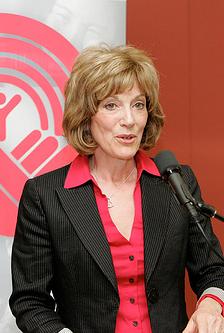In the lead-up to a likely federal election this fall, two of the major parties are holding nomination contests for candidates in Ottawa Centre. While incumbent NDP MP Paul Dewar and Green Party candidate Jen Hunter will both run again, the Liberals and Conservatives are presenting new candidates for the riding.
For many people, the candidate selection process remains a mystery, but it is actually an easy way for members of the community to get politically involved. Not only does it give people the chance to throw their hats into the ring if they feel ready and capable of the task — and willing to make the sacrifices to do so — but it also gives the public a chance to evaluate those who want to run for office.
Democracy doesn’t just happen at election time — it’s an ongoing process in which the selected candidates help craft policies to bring forward to the party during conventions, or to bring to the House if they get elected. If you want to know what potential candidates think about the issues that are important to you, now’s the time to ask them. If you don’t think they know enough about those issues, now’s the time to inform them.
The two declared Liberal candidates are Scott Bradley, currently the Director of Federal Health Affairs for Schering-Plough Canada, and Janet Yale, a Telus executive. Bradley ran against Penny Collenette in a previous nomination race and came a close second, while this is Yale’s first foray into politics.
So far, there is no declared Conservative candidate, but, according to Charlyne McNeil, chair of Ottawa Centre’s candidate search committee, three or four people are strongly interested in running and will be filing nomination papers soon.
The process is pretty simple — you buy a membership for whichever party you’re interested in supporting, and then you get to vote for the candidate you feel will best represent the party in the next election. For the Liberals, the cut-off date to purchase new memberships is Aug 24, with a vote expected in early September. The Conservatives have not yet established their cut-off date, as it’s dependent on a date being set for the party’s nomination vote.
For members of the Ottawa community — especially the queers living in Ottawa Centre — this is the chance to see that your ideas and concerns get heard by the candidates. Being a part of the nomination races at the grassroots level is a little-known way to get engaged politically. In fact, getting involved at the riding level is one of the easiest and most accessible ways to influence party policy.
So do you want to see a Liberal candidate who understands trans issues and wants to work toward harm reduction strategies for IV drug users, or a Conservative candidate who is on the Red Tory side of the party as opposed to the Reform/Alliance side? Now’s your chance to make it happen.
Name your issue and engage the candidates. Educate them on what matters to you.
Over the next few weeks, Capital Xtra will be reporting on our meetings with the candidates — first with the Liberals, and then the Conservatives — so that you can hear from them on the issues that matter to our community. If you like what you hear, sign up with the party and vote for them.
This is democracy in action — your chance to get involved in the process at ground level. And because Ottawa Centre is one of the most-watched ridings in the country, what happens here may have bigger ripple effects for each party than we might think.


 Why you can trust Xtra
Why you can trust Xtra


